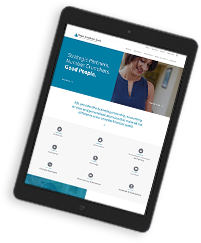By Randan Salyers, CPA, Tax Senior
In 2024, if you are the owner of a short-term rental property located in California (including rentals listed on platforms such as Airbnb, VRBO, etc.), you may now be required to report the personal property used in the rental on Form BOE-571-STR, Short-Term Rental Property Statement (see resources below for a link to sample form). This new filing, with your County Assessor, was authorized by the California State Board of Equalization because they consider short-term rentals to be a trade or business. This Statement, designed specifically for short-term rental properties, will be used to report the original cost of personal property used by your short-term rental and allow the Assessor to determine the property tax due. (more…)
As of January 1, 2024, a new rule requires millions of small-to-medium-sized businesses to report detailed personal information about their owners to the U.S. Treasury Department. The rule is expected to affect more than 30 million companies in the U.S., and failure to comply could lead to sizable fines or even jail time. Yet a recent survey shows a majority of the affected businesses were unaware of this new requirement. (more…)
On January 31, 2024, in a strong bipartisan vote, the U.S. House of Representatives approved the Tax Relief for American Families and Workers Act of 2024 (H.R. 7024). The Act contains provisions benefitting individuals and businesses. To “pay for” these tax benefits, the Act authorizes the termination of the Employee Retention Credit (ERC) program effective January 31, 2024. If passed by the Senate in its current form, no ERC claims can be filed after the termination date. It is unknown at this time if and when the Senate will discuss this legislation and potentially modify it. If passed by the Senate a retro-active termination date may still apply. (more…)
By Anthony Grant, CPA, Tax Senior
ASL Family Wealth & Individual Tax Group
Imagine it’s your last day at work. You enter a crowded breakroom and share a giant cake with your friends and colleagues as you celebrate your retirement together. You pack up your things and step out the door one last time, the building you spent so many hours in, behind you. As you look out on the horizon you start to imagine what your golden years will look like. Perhaps you dream of that trip you’ve put off for so long, or spending more time with your kids and grandchildren, or staying up-to-date on the latest changes to retirement legislation… OK, maybe not that last one. Not to worry, we are here to help! (more…)
ACTION MAY BE NEEDED BEFORE JANUARY 31, 2024
Last week, the House Ways and Means Committee approved a bill that could imminently close the window for Employee Retention Tax Credit (ERTC) claims. If passed, the deadline to file amended payroll returns to claim the Employee Retention Tax Credit moves to January 31, 2024. There are other changes to the program including extending the period for IRS audits of ERTC claims to six years and significant penalties for promoters. The termination of ERC was included as a vehicle to pay for $78 billion in tax relief for individuals and businesses in the Tax Relief for American Families and Workers Act of 2024.
(more…)
With bonus depreciation starting to phase out this year and limits on Section 179 deductions increasing, now is a good time to re-evaluate capital asset depreciation strategies. The 2023 changes could also affect the timing of upcoming purchases to maximize potential tax savings. (more…)
By Abe Livchitz, CPA, Senior Manager, Tax & Advisory
ASL Tax Group
In 2021, Congress enacted the Corporate Transparency Act in an effort to provide law enforcement agencies with the ownership information of business entities doing business in the U.S. This information is to be used to help prevent money laundering, the use of shell companies, and other financial crimes. The Treasury Department’s Financial Crimes Enforcement Network (FinCEN, the same agency that administers the foreign bank account reporting rules) was charged with running this program often called “Beneficial Ownership Information Reporting” (BOI). The program’s rules apply very broadly so nearly all privately held businesses will be required to comply beginning January 1, 2024. FinCEN expects over 32 million entities will be filing their initial reporting in 2024. The program was designed to help prevent financial crimes but the compliance burden is falling on privately held businesses across the U.S. and according to recent surveys, most business owners are completely unaware of this new program. FinCEN has created a guide, Small Entity Compliance Guide, FAQs, and informational videos to help businesses understand and comply with these new rules. (more…)
The SECURE 2.0 Act, enacted in December 2022, made a number of changes to retirement distributions, including the age for receiving required minimum distributions (RMDs), ultimately creating compliance issues for many taxpayers and plan administrators. As a result, in July the IRS provided some relief, issuing Notice 2023-54, relating to certain distributions made in 2023 to individuals that technically were not RMDs as a result of the Act. (more…)
A new issue tops this year’s annual IRS Dirty Dozen list of tax scams. The agency’s 2023 list of common tax-related frauds and abuses begins with a warning about the widespread promotion of ineligible claims for the Employee Retention Credit (ERC). The annual notice also lists a variety of other schemes—more than the promised dozen, in fact—that fraudsters often use to con businesses and individual taxpayers. (To see the entire list, visit IRS Wraps Up 2023 Dirty Dozen List) (more…)

